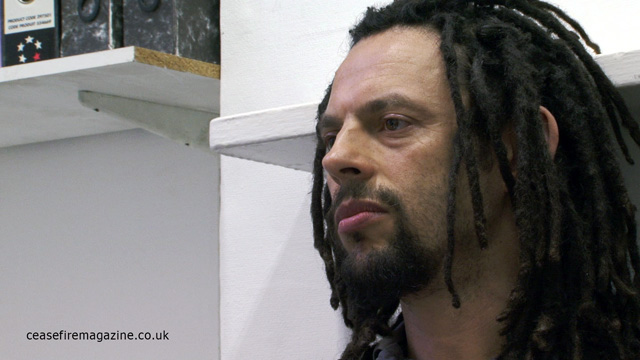Black Community Struggle, Academia and the Legacies of Enslavement Interview
Interviews, New in Ceasefire - Posted on Monday, April 28, 2014 16:50 - 0 Comments
By Adam Elliott-Cooper, Nathan Edward and Usayd Younis

In 2013, Joy Degruy, Assistant Professor at Portland State University (USA), was brought in to one of the centres of Britain’s black community – Tottenham, North London. The visit was organised by Stafford Scott, co-ordinater of Tottenham Rights and Race Advocacy a Officer at The Monitoring Group, and Robbie Shilliam, lecturer in the Department of International Relations at Queen Mary’s, University of London.
Degruy has become well-known across the US for her contribution to both black intellectual thought and her educative work with black communities. Her book, Post-Traumatic Slave Syndrome, seeks to unpack the collective trauma experienced by black communities in the a West following enslavement and colonisation.
Disproportionate levels of intracommunal violence, hierarchies of knowledge which champion European thought and anti-African beauty industries are explained through an understanding of how low collective self-worth is instigated by enslavement but compounded and reproduced over generations by racist oppression.
The uniqueness of both the transatlantic slave trade, and the position of Africans in Europe’s settler colonies in the US and Caribbean for the generations which followed enslavement, has created a very specific experience of racism, with deep-seated psychological effects.
Degruy’s rigorous, yet frank approach to deconstructing how racism is internalised, particularly by the descendants of enslaved Africans, seeks to help black communities rebuild their relationships with each other, and themselves, in an environment that continues to display hostility towards black progress, reproducing the structures of a society entrenched in white domination.
Given the urgency of such work, it is remarkable that few British-based academics, if any, are in a position to play a similar role in black communities this side of the Atlantic. Robbie Shilliam and Stafford Scott discuss not only the work of Joy Degruy, but the issue of black academia in the UK. What role do black intellectuals play in black community struggles in Britain today? Is their impact being felt, and how can they feed into each other?
Given the myriad of issues currently facing black communities, such as the growing prison industrial complex, the failures by the education system, mental health and under/unemployment, there can be no doubt that both activism and academia have significant roles to play in building collective resistance.
With Britain’s anti-racist movement still recovering from the destruction caused by Thatcherism, and academia becoming increasingly privatised, a conversation on how the strengths of these two approaches can be best utilised, is as pertinent as ever.




Leave a Reply